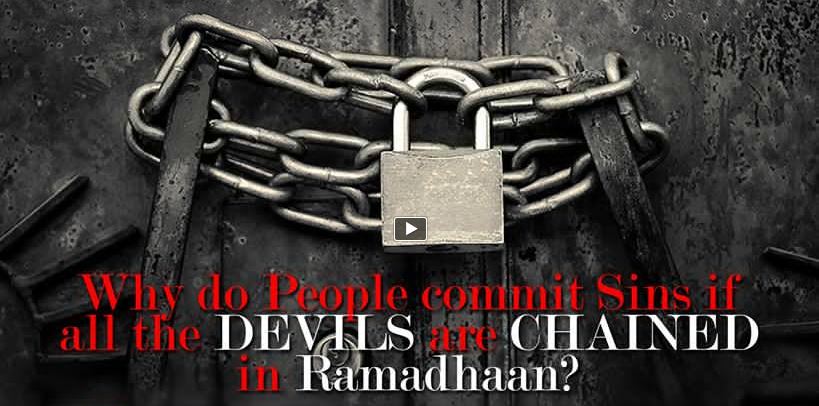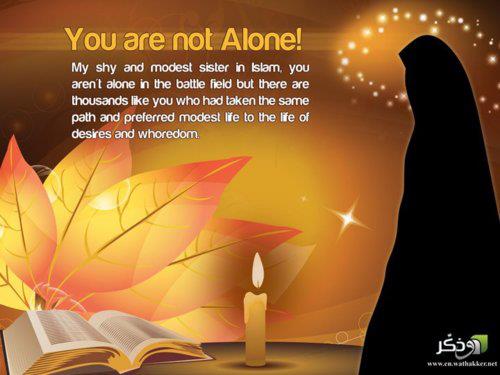DETAILED FIQH ON THE MOON SIGHTING ISSUE BY SHAYKH AHMAD MUSA JIBRIL (HAFIDHULLAH)
PART-1:
PART-1:
PART-2:
DUE
TO YOUTUBE'S UNJUST RULE ON RESTRICTING SHAYKH'S LECTURES FOR POSTING
ELSEWHERE, CLICK BELOW LINKS TO WATCH THE ABOVE 2 VIDEOS DIRECTLY ON YOUTUBE
INSHA'ALLAH:
Below
are SOME MAIN POINTERS Transcribed from our honored Shaykh Ahmad Musa Jibril's
(hafidhUllah) above 2 linked Classes on comprehensive Fiqh on Moon Sighting from the Book
Zaad Al-Mustaqni'... Please do try to Insha'Allah listen attentively to both 2 Classes above.
- If a Country officially declares
Ramadaan by Moon sighting, then entire Globe must follow along.
- The clear matter that's not disputed
is that when a Country sights the Moon and declares the Ramadaan then
the entire Country or Vicinity must Fast by Ijma' i.e. there is no
dispute here.
- You don't need to say, “oh I didn't
see the Moon myself!” - You don't personally need to see the Moon
yourself, because Allah said:
“...So whoever of you sights
(the crescent on the first night of) the month (of Ramadān i.e. is
present at his home), he must observe Saum (fasts) that month...”
[Al-Baqarah 2:185]
Note here: “sights/witnesses
the month”, Allah did not say that you need to personally
witness the Moon. He said if you “witness the month” - which is a
difference. You Fast if you witness the Month, meaning if the Country
declares it/your Vicinity declares it, you must go along. You have no
excuse to say, “oh I didn't personally see the Moon!”
- There is an Ijma' of Ulema that its
Wajib to Fast Ramadaan by the people who reside in a Country after it
has been confirmed by credible witnesses in a credible way.
- There is also a near-Ijma' that close
Vicinities, i.e. near-by Countries should follow along with that
Country that has declared the sighting.
- Whats disputed now, is that if one
Country sees it and confirm the sighting, what about the other
Countries worldwide that has not confirmed the sighting? Must all the
Country follow that one Country that has confirmed the Moon sighting?
There are 4 opinions on this matter:
* The First opinion is what the Author
adopted (Author of Zaad al Mustaqni'), he adopted the opinion that if
one Country confirms the sighting of the Moon, all other Countries
follow along in every part of the Globe with no exception! The proof
for this is in Sahih Muslim:
“Observe fast on
sighting it (the new moon) and break (fast) on sighting it (the new
moon), but if the sky is cloudy for you, then complete the number (of
thirty).”
How is this proof that all the
Countries have to follow along? They said that this is the general
order from the Messenger Muhammad (saws) – general, broad and is
directed to the entire Ummah... Shaam, Misr, Andalus, Unites States –
they all should go along whatever Country declares it.
The point of the Hadith, they're saying
is that the order of Messenger Muhammad (saws) stating to Fast
Ramadaan based on sighting, is regardless of any boundaries or any
Country. As soon as one Country officially declares it then every
other Country follows along. The Messenger (saws) did not specify any
Continent, a Country or a certain area, it was broad for everyone.
Their second proof is: “Don't Fast
until you see it (Moon) and don't break your Fast until you see it
(Moon).” Again over here, they used the same rational that this is
a statement that's broad from the Messenger (saws) and its to the
entire Ummah, regardless of any boundaries or Country.
Their third proof is: “To keep the
Ummah untied – Unity!” This method they said, preserves the unity
amongst the Muslim Ummah. Even though unity is not a goal within
itself, especially on account of the Truth! If the unity opposes the
truth, we don't go by unity, we go by what the truth is! But in
matters like this the Ulema take unity into consideration, especially
if the issue at hand is backed by some proof.
This opinion and its the official
Hanbali opinion and its the one that the Arthur adopted states that
“if one Country sights the Moon, then the entire Globe follows
along.” And their proofs have been mentioned.
* The Second opinion is what Ibn
Taymiyyah adopted and note that Ibn Taymiyyah himself is the Imaam of
the Hanbali Madhab. The First opinion was the opinion of the Hanbali
Madhab and this also is the opinion of Ibn Taymiyyah who was a
Hanbali. The opinion is that when a County sights the Moon, its
sufficient for that Country, they don't need to follow each other,
i.e. for every Country is its own sightings. Meaning if ash-Shaam
have their own sighting, then Andalus doesn't have to follow along –
every Country follows their own separate sighting. This opinion is
the opposite of the First opinion. So whats their proof? Their first
proof is that when Allah said:
“...So whoever of you sights
(the crescent on the first night of) the month (of Ramadān i.e. is
present at his home), he must observe Saum (fasts) that month...”
[Al-Baqarah 2:185]
“We didn't see the Moon!” - They
said - “our Country did not sight the Moon, your Country sighted
the Moon, so we did not witness the Month.”
Their second proof is that:
“Observe fast on
sighting it (the new moon) and break (fast) on sighting it (the new
moon), but if the sky is cloudy for you, then complete the number (of
thirty).” [Sahih Muslim]
They said, another Country may have
sighted the Moon and they may have a confirmed sighting some where
else. The Messenger (saws) said to observe the Fast on sighting of
the Moon, but we here in our Country didn't sight the Moon!
So they took it to mean that every
Country is independent.
Their third proof is Qiyaas (Analogy),
they said, people throughout the Globe, all over the world sight
their pre-Dawn and end their Fast at Sunset in different timings. For
example if its Maghrib (breaking the Fast) in one Country, there
maybe starting to Fast in another Country – So the Qiyaas is that
because we accept that the world has different timings when they
start and end the Fast, we should accept the fact that within the
world there's a difference in the sighting of the Moon!
Their fourth proof which is their
strongest proof and Ikrimah adopted their opinion because of this
proof, they said the Hadith which is also in Sahih Muslim:
“Kurayb said: Umm
Fadl, daughter of Harith, sent him (Fadl, i.e. her son) to Mu'awiyah
in Syria. I (Fadl) arrived in Syria, and did the needful for her. It
was there in Syria that the month of Ramadan commenced. I saw the new
moon (of Ramadan) on Friday. I then came back to Medina at the end of
the month. Abdullah ibn Abbas asked me (about the new moon of
Ramadan) and said: When did you see it? I said: We saw it on Friday
night. He said: (Did) you see it yourself? I said: Yes, and the
people also saw it so they observed fast and Mu'awiyah also observed
fast. Thereupon he said: But we saw it on Saturday night. So we shall
continue to observe the fast until we complete thirty (fasts) or we
see it (the new moon of Shawwal). I said: Is the sighting of the moon
by Mu'awiyah not valid for you? He said: No; this is how the
Messenger of Allah (saws) has commanded us. Yahya ibn Yahya was in
doubt (whether the word used in the narration by Kurayb) was Naktafi
or Taktafi.”
In this Hadith, Ibn Abbaas, a Sahabi,
his Ijtihaad was that ash-Shaam had their own sighting and we down
here at Madinah have our own sighting.
Now, the response on this proof is that
the key statement in the end that says, “...this
is how the Messenger of Allah (saws) has commanded us.” -
When one reads this and he's overlooking the Hadith, he assumes that
the statement of Ibn Abbaas “...this
is how the Messenger of Allah (saws) has commanded us”
means that every Country has their own sighting! But what Imaam
ash-Shawkani and others stated, and I find this very strong, is that
the statement by Ibn Abbaas was referring to the statement of the
Messenger (saws) where he said, “Do
not start the fast or break it until you see the new moon.”
[al-Muwatta Imaam Malik],
ash-Shawkani said that Ibn Abbaas did not mean by the statement
“...this is how the Messenger of
Allah (saws) has commanded us”,
that every Country has their own sighting – This was not what he
was trying to say that the Messenger (saws) was talking about.
What it boils down to is
that the statement of Ibn Abbaas “...this is how the Messenger
of Allah (saws) has commanded us”,
had it been to referring to different sightings, had he said that
this means Messenger (saws) enjoined upon us different sightings for
different Countries, then that statement would have ended the dispute
in this matter! The different sightings for different Countries was
an Ijtihaad by Ibn Abbaas, its his personal opinion. “...this
is how the Messenger of Allah (saws) has commanded us”,
means we start by sighting and we end by sighting – i.e. it meant
something totally different.
* The Third opinion on this matter is
that if the Khalifah orders us something, we go in accordance to what
the Khalifah orders – This is a correct opinion, because a Khalifah
has a lot of discretion and authority, and the Muslims should adhere
to him in these kind of matters.
* The Fourth opinion is whoever gets
the news anywhere that a Country has declared and confirmed the
sighting then everyone should follow along with that Country, as long
as they hear/get the news.
This is actually similar to the First
opinion, infact its in reality part of the First opinion, but some
Ulema have it as an independent opinion
- The Conclusion is that matters like
these are narrowly disputed, i.e. its a close dispute. Both opinions,
i.e. the Unification of the sightings according to the First opinion
and the opposing opinion that each Country has its own sighting –
Both of these opinions have Giants of I'lm to back them! Not ordinary
people! However personally I lean towards the First opinion because
that really is the ideal situation and is backed by proof. When a
Country declares the Moon sighting, the ideal scenario is that the
world follows along! Why? Because the Ahadith that points to Fasting
based on sightings are general, they're broad as mentioned in the
proofs. Such general statements are for everybody for every Country,
so once its declared and confirmed in a proper way then everyone must
follow along. The order to Fast based on sightings don't have
boundaries restricted it – that's the issue here! Its like the
order to perform Prayers, Allah in the Quraan said:
“And perform As-Salāt
(Iqāmat-as-Salāt), and give Zakāt...” [Al-Baqarah 2:43]
Similarly He ordered us not to take
Ribaa', don't go near adultery or fornication – All these orders
they apply to everyone everywhere! Do you ever hear anyone say that
these orders apply to only some people in some places? These applies
to everyone if every Country and likewise the Messenger's (saws)
order to sighting should apply to everyone everywhere, they are
general/broad and we should keep them like that.
Ibn Abbaas had his personal Ijtihaad
and as I broke it down to you that he had his own opinion that every
Country has its own sighting, but ash-Shawkani responded to that and
he said, “The general proof of the Messenger (saws) ordering
everyone to Fast indicates that its for everyone, everywhere. Once
the Moon is sighted in one place or one part of the world, everyone
must follow along and Fast.” If Misr declares it then Arabian
Peninsula and the rest of the world should Fast, if Makkah declares
it the rest of the world should Fast, if Andalus happens to confirm
it the rest of the world follows along! Why? Because the Ahadith are
general and Ibn Abbaas's statement was his Ijtihaad and not the
statement of the Messenger (saws).
ALSO, BELOW FATWA BY SHAYKH ABU QATADAH:
Question:
What is your opinion on fasting in unison? Should each country have its own moon sighting? May Allah reward you.
Answer:
In the Name of Allah, the Beneficent, the Merciful.
Naturally and according to the Shari’ah, there is to be only a single Moon sighting for the whole world. This is the opinion of the three Imams except for the Shafi’is, whose opinion in this is rejected and incorrect.
Because of the fact that people begin their fasting on different days, we have become the laughing stock of other nations.
However, it should be mentioned that what we are in today is because of the absence of the Shari’ah and the authority of the murtaddin over our lands. They have changed the symbols of this religion and have made them like toys in their hands. So, O Allah, how has today’s absence of the Religion from the Muslims brought about disasters and tribulation…
And Allah is sufficient for us, and He is the best Disposer of our affairs.






